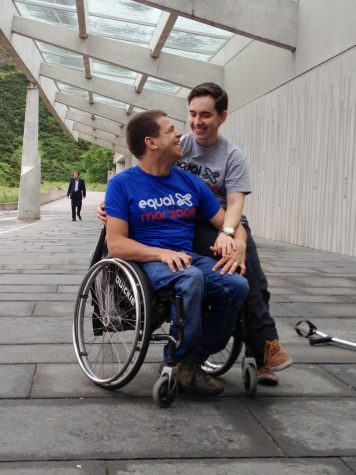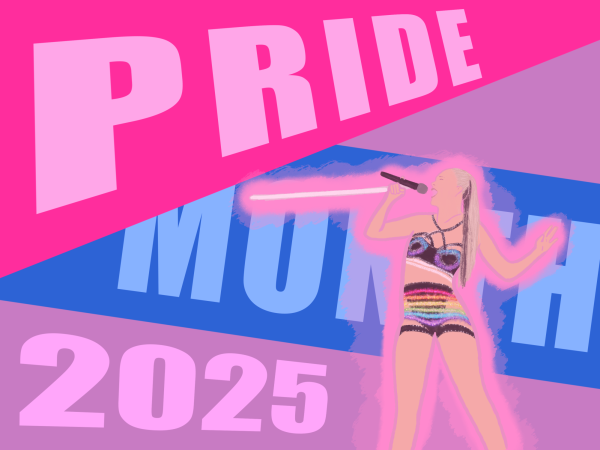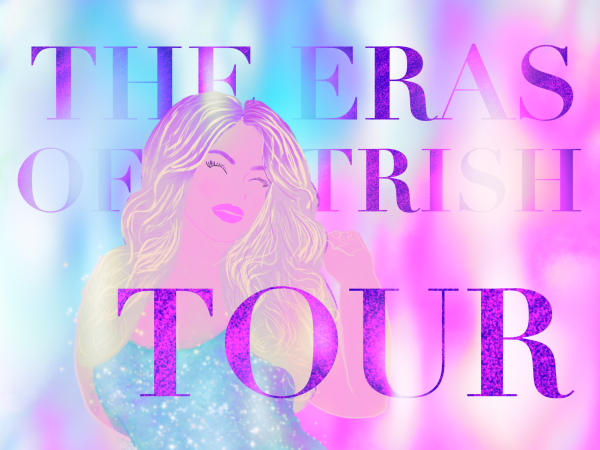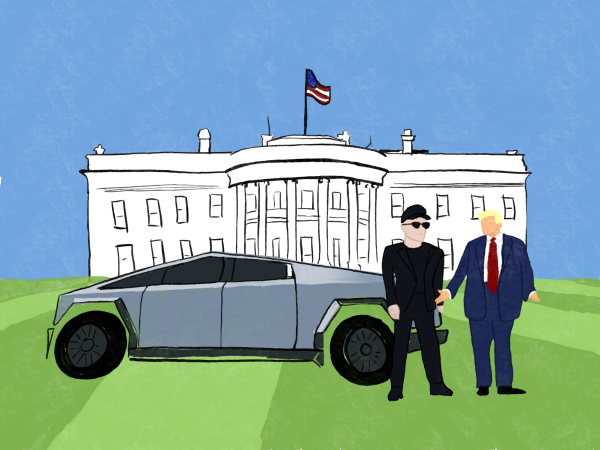OPINION: Guess what? Your friends with disabilities want to get laid too!
Exchanging glances, names, social media handles and numbers are just a few of the ways that our generation shows romantic interest. However, for someone who has a disability, these actions, whether done by the person with a disability or not, tend to land in a murky middle. As a result, we are left trying to decipher the unspoken messages, calculating the potential blowback or fallout of any action. I think that the film and media industries should change their approach when portraying people with disabilities and sexual acts so that they would not have to overcome so many obstacles in order to find romance.
For starters, as disabled individuals, we must be aware of the comfort of those around us. How often do you consider the comfort level of the people with whom you are hanging out before making a move on someone? You do not necessarily have to be mindful of these issues because your behavior is viewed as “normal.” Able-bodied relationships have become the norm through the portrayal of romance in books, tv shows, movies and so forth. In turn, this produces an inherent assurance among neurotypical people that people with disabilities are not necessarily entitled to and must learn or educate themselves about. For individuals with disabilities, this is a very real thought process that we go through when we want to make a move. For example, recently I was hanging out with friends and wanted to ask someone if he would be interested in going out. I ended up not making the move because I didn’t want to make the group dynamic awkward or, more importantly, ruin any potential meetups.

Even if someone in the friend circle is okay with the concept of being in a romantic relationship with a disabled person, it doesn’t necessarily mean they are comfortable with the individual making a move. For example, I have a friend who talked about how the Netherlands would pay for people with disabilities to have sex every month. This individual would indicate that they were capable of a physical relationship, all the while talking to a disabled person. Not once did the friend I mentioned before show the slightest interest in my romantic endeavors. I admittedly did not push them to see me as a sexual being because I valued his friendship more than making him uncomfortable. This does not mean I did not make a special mental note when he finally acknowledged me as an equal in the context of a conversation.
While the above scenario is a breath of fresh air, it is also incredibly uncommon. Unfortunately, neurotypical individuals assume that people with disabilities are not physically or psychologically capable of having romantic feelings or taking part in sexual activities. I have had guys or people in general ask point blank me if everything “worked down there.” As a guy this is insulting and frustrating, to say the least. Do they think I’m an alien or sterile? For the record, yes, everything works just fine down there. Another favorite is when guys say that they would not perform oral, kinky or anal acts with/to me because I’m “too nice.” I chuckle at this one because I know it is solely because I have a disability—nothing else. I always think to myself, “Has it never crossed your mind that I might have the desire to be wanted in that way?” While these statements are made from ignorance and fear of the unknown, it is Hollywood’s and the media’s gross underrepresentation of people with disabilities in sexual relationships and current representation of people with disabilities as purely platonic beings that fuel these misconceptions.

If Hollywood, the production industry, books and other publications would portray people with disabilities in romantic relationships just as much as neurotypical individuals, it would be a lot easier to act on our feelings and be seen as romantic beings. It would also begin to remove the taboo of seeing people with disabilities as romantic and, God forbid, sexual.
Furthermore, this hypothetical increase in the portrayal of romance among people with disabilities will make potential partners more likely to be receptive to advancements. For instance, if I were to go out to a gay club, see a boy that I find attractive and make a move, chances are that it would go nowhere unless this individual has had experience interacting with a person with disabilities. While this could be because he is not interested, more likely than not it would be because he has no idea how to interact with someone who has a disability. As much as I would be willing to coach this individual along over multiple interactions, we all know the likelihood that we would be at the same place again is slim. However, with normalization, the same interaction might lead to a second date. If nothing else, a lustful one-night stand.

Moreover, the normalization and portrayal of people with disabilities as romantic beings would also normalize misunderstood gestures. We all know people tend to do things for people with disabilities that they would not necessarily do for their neurotypical friends. While this is perfectly understandable, these gestures may or may not be perceived as romantic moves, and are confusing in that way. In one instance, a guy offered to buy me a shot. In another, a guy took me by the hand and danced with me. Both actions left me feeling star struck and wondering if those were romantic advances and if I should pursue them. Ultimately, I left them as nice gestures because I wasn’t sure of their intentions and did not want to cause consternation among friends. Unfortunately, this is how I view all gestures. However, with the increased visibility in media, I would feel freer to act on this or that gesture because it would be normalized, and neurotypical people would think twice about doing something that could be perceived as romantic.
So, even if we as individuals with disabilities have a layered lens through which we view romanticism, we are just like you. Please be aware that your actions, as neurotypical individuals, have an impact on our psyche, thought process and Valentine’s aspirations. Above all, please allow us the same kind of safe place for romantic exploration as we allow you









Ken Preston • Aug 2, 2024 at 8:04 am
I suffered a head injury in 1985 which put me on disability I would very much like to meet new friends